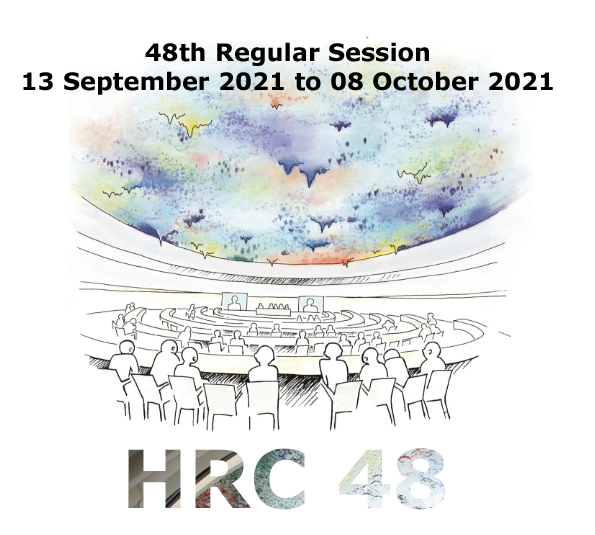The human rights violations in Balochistan by Pakistan have many aspects. These include enforced disappearances, kill and dump, illegal detentions, torture of political and human rights activists. Human rights violations also include social, cultural, and economic aspects.
Abducting political activists, students, journalists, intellectuals, and human rights defenders, keeping them in illegal detention for years has become the norm in Balochistan. The security agencies pick up human rights activists, journalists, doctors, teachers, political leaders, student activists, and tribal elders and keep them incommunicado for years. These people are dubbed “the missing persons”. On many occasions, the mutilated dead bodies of some missing persons have been found but the fate of thousands of the Baloch are still uncertain after their disappearance years ago. On many occasions, the Pakistani state ministers admitted that thousands of people are missing. A list of six thousand missing people was submitted in the national assemble of Pakistan in 2019 by Balochistan National Party.
Inflicting inhuman torture and then dumping the mutilated bodies of political and social activists in remote and desolate areas in Balochistan has been one of the tools in the protracted conflict between the Pakistani security forces and the Baloch national resistance.
Anti-social and extremist religious elements organized by state security agencies in various parts of Balochistan are being used in kidnapping and dumping bodies of political activists. They are popularly known in Balochistan as the army’s death squads. They act in conjunction with security forces. In most of the documented cases, the perpetrators acted openly in broad daylight, sometimes in busy public areas, with apparently little concern for the presence of numerous witnesses. Several social activists including writers, singers, and poets became victims of target killings by security agencies and their proxy death squads since the start of the present conflict. Mass graves containing the remains of political activists and tribal elders have been discovered in 2014, and 2017. These findings have been widely reported by various international human rights organizations.
The draconian policy of collective punishment adopted by the Pakistani security agencies is being carried out with impunity in a 21st -century world. With any resistance activity against the security forces, the nearby villages would be raided, and mass punishment given to the civilian population. Frequent raids on villages, burning of houses, and forcing the inhabitants to vacate their dwellings are examples of arbitrary measures in the conflict. In the process of implementing this strategy, thousands of people were forced to leave their homes. The number of internally displaced families is in the thousands.
Radicalization of the society is another aspect where hundreds of religious schools under the supervision of the Pakistani security establishment are busy in the indoctrination of students in fanatical religious doctrines.
Ruthless exploitation of Baloch resources by the state is another aspect of human rights violations. China Pakistan Economic Corridor (CPEC) is the economic aggression in which the Chinese corporations are siphoning off gold, uranium, platinum, and other natural resources from Balochistan. The whole coastal region of Balochistan has been leased out to China.
Balochistan is in turmoil as the state of Pakistan has only been relying on military repression in dealing with the Baloch national question. The people are living in a state of siege while the Pakistani authorities convey the impression to the international community that the national resistance of the Baloch has been contained or crushed. But the fact is that on the one hand, the army and the Baloch resistance have been locked in a bloody, protracted, and devastating confrontation with no side appearing as the winner. The fact is that the whole region of Balochistan has officially and unofficially been declared as a no-go zone. National and international media has been barred to enter Balochistan for the last many years. Humanitarian organizations and human rights groups are not being permitted to investigate the crimes being perpetrated by security forces. The conflict between the powerful Pakistani security establishment and the helpless Baloch national resistance is uneven. The Pakistani army is fighting a war in Balochistan without witnesses.
In recent months, human rights violations have increased in intensity and quantity. Data collected from different districts of Balochistan by the Baloch Human Rights Council and other human rights organizations show that only in the first half of 2021, more than 37 people have been forcefully disappeared by the security forces and its death squads.
The irony is that the legal institutions are in the grip of the powerful military establishment and unable to give any relief to the suffering people in Balochistan. We believe that the Baloch people need urgent help from the UN and its human rights institutions. We demand justice for the Baloch. Failing to do so is letting down a people who are being minced under the powerful jaws of the military establishment of a recognized rogue state.
The Baloch are facing a systematic genocide. They are pinning their hopes on getting support from the international community. The gross violation of human rights in Balochistan needs immediate attention and intervention from the civilized world. In the face of heinous crimes being committed by the Pakistani security forces in Balochistan:
- The UN should establish a fact-finding mission to investigate the extra-judicial killings and mass disappearances of the Baloch political and social activists.
- The perpetrators of the heinous crimes against humanity in Balochistan should be brought to justice by initiating cases against them in the international court of justice in The Hague.
Human Rights Without Frontiers, NGO(s) without consultative status, also share the views expressed in this statement.



